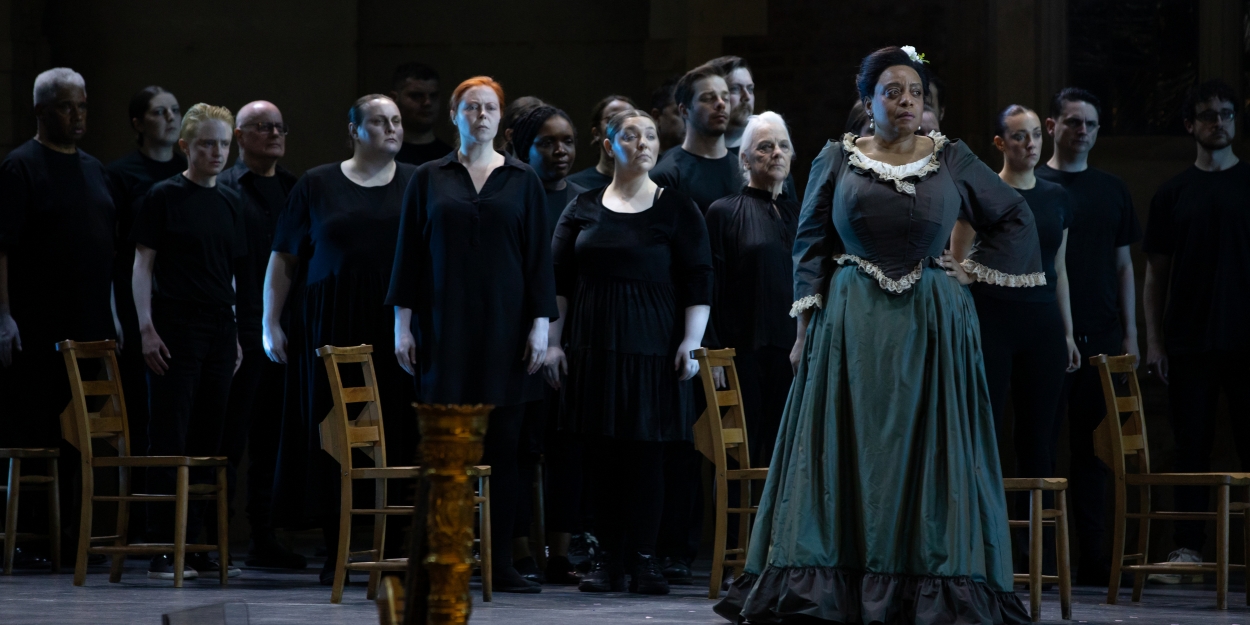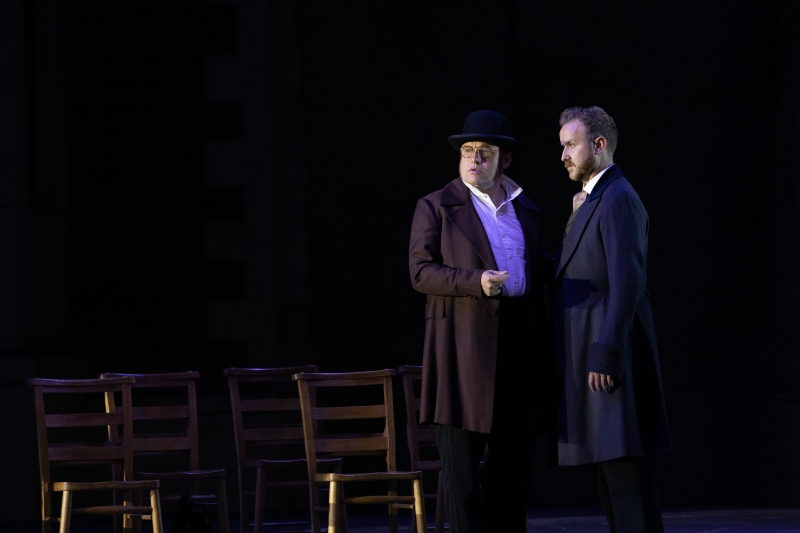Review: EDGAR, Opera Holland Park
Puccini's early, flawed work given a semi-staged production that invites strong reactions

 In the centenary year of his death, it’s quite a challenge to find something new about Giacomo Puccini. Even if the name is more likely to pop up at The Guardian end of the market, the man’s works are very much in the mainstream, most obviously, in “Nessun Dorma’s” association with football and in the panoply of doomed heroines he twists into our hearts. Take anyone who claims not to know anything about opera, and you’ll find that it’s so infused in our culture, that they actually do - and Puccini’s operas are at the front of that queue.
In the centenary year of his death, it’s quite a challenge to find something new about Giacomo Puccini. Even if the name is more likely to pop up at The Guardian end of the market, the man’s works are very much in the mainstream, most obviously, in “Nessun Dorma’s” association with football and in the panoply of doomed heroines he twists into our hearts. Take anyone who claims not to know anything about opera, and you’ll find that it’s so infused in our culture, that they actually do - and Puccini’s operas are at the front of that queue.
So it was with a genuine sense of curiosity that I approached Edgar. How had I missed it before? Why was this show described as semi-staged and not a full production? Why only three performances? Reading some of the programme notes, the impression dawned that this was the difficult child of the canon, kept under the stairs, out of sight and out of mind. So be it - lots of 20th century works (this is the 1905 three act version, the last of the composer’s re-writes) can be a little embarrassing exposed to the glare of 21st century sensibilities. It doesn’t mean they can’t be done.
But, as the production developed, one saw exactly why it’s produced so infrequently, but also why it should be shown more often. It is to Opera Holland Park’s credit and a testimony to director Ruth Knight’s commitment to the gorgeous score and problematic libretto, that one can come away with such a view. Opera, art even, should be challenging, uncomfortable and authentic and all three hot buttons are pressed pretty hard as the light fades in West London.
Edgar is a wealthy, dissolute man, who is torn between two women, Fidelia, who is virtuous and Tigrana, who is sensual. When written, the dichotomy was between Good and Evil but, through the lens of 2024, it feels more like Love vs Sex. And it’s presented, as one would expect from this composer, very much through the male gaze.
The bareness of the stage doesn’t help in establishing the characters. Anne Sophie Duprels as Fidelia, looks like a Victorian governess, dowdy dress and hair scraped back, agonising over her doomed love for the caddish, swaggering Edgar. Gweneth Ann Rand is very different, her Tigrana, sashaying in like Maria Reynolds, Alexander Hamilton’s temptress in the musical. But it’s very hard to discern how this triangle was established - how the man inspired such devotion in the women is a crucial backstory that’s missing. So too is the clear sense that Tigrana has been a sex worker and therefore offensive in the eyes of everyone but her lover.
Peter Auty’s Edgar is a horrible human being, despicable in the denouement and, tellingly, inspiring a few pantomime boos at the curtain (alongside applause for his performance). His antagonist, Julien Van Mellaerts’ Frank, is a hard character to play, whose reconciliation with Edgar so soon after a duel no less, is as impetuous as Edgar’s burning down of his own house - it stretches credibility. Opera often does, but there’s usually enough consistency within the worlds they create to turn a blind eye - harder to do in this case. Librettist, Ferdinando Fontana, sold Puccini something of a hospital pass and no amount of repairs and revisions could get him off that hook.

If it’s hard to engage with the characters, the reverse is true of the music, which is much the best reason to buy a ticket. Under Naomi Woo’s energetic baton, the City of London Sifonia find the passion and the beauty in the score which sounds way ahead of its time. One gets plenty of Bernstein and even a little Sondheim triggered in the mind, and arias that may not have the fame of those from Tosca or Madama Butterfly, but are so pleasing on the ear and, even when expressing the darkest of thoughts, lift one’s soul.
The best singing is delivered by the Chorus as a townspeople every bit as biddable as the Roman mob at Caesar’s funeral, the voices swirling around in the open air under the marquee roof. Again, there just isn’t enough to establish reasons for their swift changes of heart, but that doesn’t detract from their work. The principals sometimes struggle a little to be heard above the orchestra and I was grateful for the English surtitles at times, but Duprels finds the tragedy and Van Mellaerts the arrogance in their arias.
So a real curio from one of the masters of the genre, at its best, magnificent and at its worst, cringingly ill-conceived. This production brings out the truth of those extremes, not sanitising the work as it exists in the historical record, but allowing us to make our own judgements. For some, that judgement will be to consider it a fascinating staging post in Puccini’s development; to others, it will be a step too far into misogyny and glee at the demise of women. What it is incontestable is that nobody will leave without strong thoughts about what they have seen and, I suspect, reactions as mixed as mine own.
Edgar at Opera Holland Park until 6 July
Photo Credits: Ali Wright
Reader Reviews
Videos

